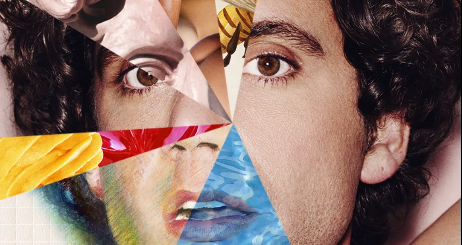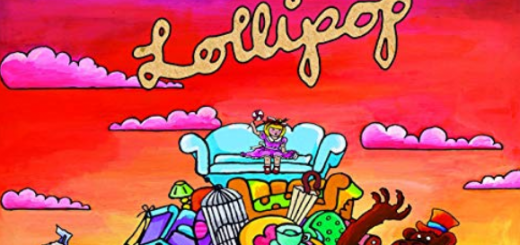Grace Kelly by Mika Lyrics Meaning – The Chameleonic Quest for Identity and Acceptance
Lyrics
The last time we talked, Mr. Smith
You reduced me to tears
I promise you, it won’t happen again
Do I attract you?
Do I repulse you with my queasy smile?
Am I too dirty?
Am I too flirty?
Do I like what you like?
I could be wholesome
I could be loathsome
I guess I’m a little bit shy
Why don’t you like me?
Why don’t you like me without making me try?
I try to be like Grace Kelly (mmh)
But all her looks were too sad (ahh)
So I tried a little Freddie (mmh)
I’ve gone identity mad
I could be brown
I could be blue
I could be violet sky
I could be hurtful
I could be purple
I could be anything you like
Gotta be green
Gotta be mean
Gotta be everything more
Why don’t you like me?
Why don’t you like me?
Why don’t you walk out the door
(Getting angry doesn’t solve anything)
How can I help it?
How can I help it?
How can I help what you think?
Hello, my baby
Hello, my baby
Putting my life on my brink
Why don’t you like me?
Why don’t you like me?
Why don’t you like yourself?
Should I bend over?
Should I look older just to be put on your shelf?
I try to be like Grace Kelly (mmh)
But all her looks were too sad (ahh)
So I tried a little Freddie (mmh)
I’ve gone identity mad
I could be brown
I could be blue
I could be violet sky
I could be hurtful
I could be purple
I could be anything you like
Gotta be green
Gotta be mean
Gotta be everything more
Why don’t you like me?
Why don’t you like me?
Walk out the door
Say what you want to satisfy yourself, hey
But you only want what everybody else says you should want
You want
I could be brown
I could be blue
I could be violet sky
I could be hurtful
I could be purple
I could be anything you like
Gotta be green
Gotta be mean
Gotta be everything more
Why don’t you like me?
Why don’t you like me?
Walk out the door
I could be brown
I could be blue
I could be violet sky
I could be hurtful
I could be purple
I could be anything you like
Gotta be green
Gotta be mean
Gotta be everything more
Why don’t you like me?
Why don’t you like me?
Walk out the door, ooh
Humphrey, we’re leaving
Ka-ching
At first glance, Mika’s ‘Grace Kelly’ parades as a jubilant pop anthem, swirling in its upbeat tempo and catchy hooks. However, nestled within its vibrant melody lies a deep dissection of the search for identity in the face of societal pressures—a portrait of an individual’s quest to be loved for who they truly are. With its blend of stylistic vocals, the song is more than just a sonic delight; it’s a narrative that speaks to the universal human experience of acceptance, rejection, and the innate desire to fit in.
Themes such as self-image, authenticity, and the eclectic blending of personas come to life through the verses, channeled through a charismatic delivery reminiscent of theatrical greats and rock legends alike. Mika navigates the intricate layers of individuality and conformity with a tone that is both playful and poignant. Let’s dive deeper into what makes ‘Grace Kelly’ a modern-day pop odyssey, rich with significance and ripe with profound inquiry.
The Disguised Cry for Individuality
Mika kicks off the record with a telling confession—the last interaction left him in tears. This sets the stage for a narrative that isn’t afraid to expose vulnerability. Throughout ‘Grace Kelly,’ the artist poses questions that point to insecurities stemming from societal expectations. Each line probes the balance between attracting and repelling, suggesting an internal struggle to maintain one’s true essence while simultaneously adapting to the whims of external validation.
The repeated inquiry, ‘Why don’t you like me?’, is a plea for recognition that goes beyond physical appearance or social demeanor. It’s a call to be seen for one’s innate qualities, not just the performed identities that are often paraded to earn approval.
Chameleon Complexes: A Spectrum of Personal Identities
Each chorus rings out as an anthem of personal transformation and the extremes one might pursue to gain affection. Mika’s mention of colors—brown, blue, violet sky—symbolizes his willingness to shift his identity in boundless ways. The color imagery is a powerful metaphor for the fluidity of self, emphasizing the point that identity is vast and not as binary as black and white.
‘Gotta be green, gotta be mean’ further punctuates this theme, suggesting that morphing into something outlandish or severe might be the solution to gaining the much-desired acceptance. It’s a stark look at the lengths one might go to fit a mold that is constantly changing shape.
The Hidden Meaning Behind the Glamour and Glitz
Referencing silver screen royalty Grace Kelly and rock icon Freddie Mercury, Mika hints at a deeper societal commentary. Both figures represented different ideals of perfection in their times—Grace with her poised elegance, Freddie with his flamboyant defiance. Mika’s juxtaposition of their images points to the endless chase for iconic status, only to find that such pursuits often come paired with a pervasive sense of sadness and ‘identity madness.’
By invoking these legendary personalities, Mika not only bridges time periods but also connects disparate cultural expectations. He underscores the existential absurdity of contorting oneself into someone else’s idea of perfection, questioning why such performances are necessary in the first place.
Battle Cry Against One-Size-Fits-All Desires
In a piercing critique, Mika addresses the human tendency to crave what is popularly endorsed. ‘Say what you want to satisfy yourself, but you only want what everybody else says you should want,’ he laments. This line homes in on the external pressures that shape personal desires and highlights the disconnect that arises when those prescribed wants are not aligned with authentic self-expression.
There’s an edge of frustration in battling the expectations that dictate not just who we should be but what we should long for. Mika’s defiance is palpable and serves to embolden listeners to question their own concessions to the crowd’s clamor.
Memorable Lines that Echo the Self-Realization Journey
Above the vibrant instrumentation, certain lines carve themselves into the listener’s conscience. ‘Getting angry doesn’t solve anything’ underscores the futility of railing against the realities of identity politics, nudging towards the wisdom of self-compassion in the face of frustration.
And finally, the impactful ‘Why don’t you like me? Why don’t you like yourself?’ takes a sharp turn inward, suggesting that the struggle for acceptance is as much about self-love as it is about the approval of others. Mika invites a reflection on the wonders and wounds of our self-perception, all while serving up a pop melody that belies the weight of its content.








